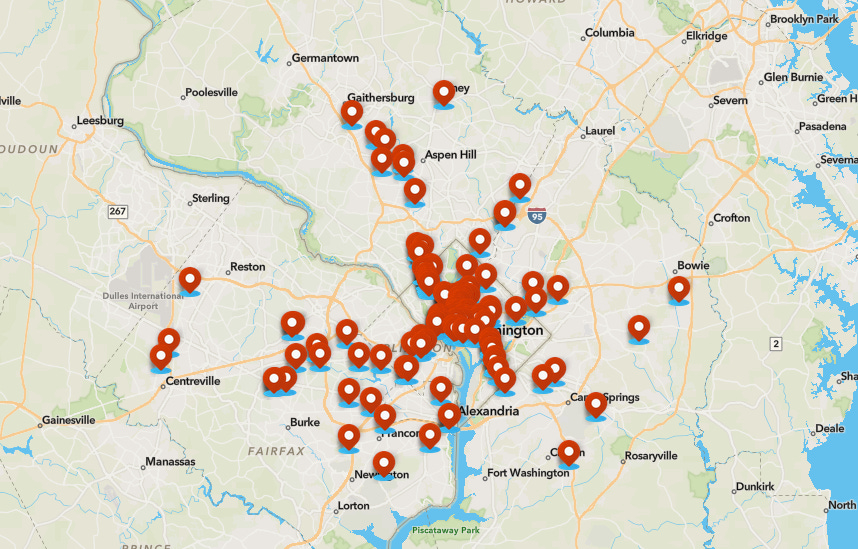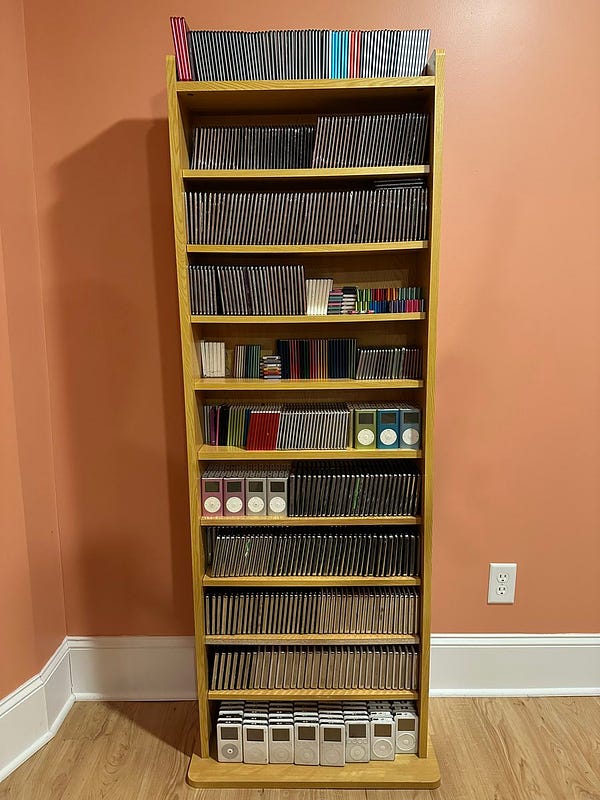Fight to Repair Weekly: Week of November 14, 2022
In France, the government is offering consumers cash bonuses to repair their stuff. Also: Washington D.C. launches interactive map to encourage repair and re-use.
French Govt. offers cash to boost appliance repair
There’s broad agreement on the need for economies to abandon the culture of waste and embrace more environmentally sustainable, “circular” concepts. But - for the most part - this is all talk. In countries like the United States, for example, more than 100 proposed right to repair laws in 40 states have been killed off by manufacturers and corporate interest groups since 2014. The auto industry has successfully delayed implementation of an expanded automobile right to repair law in Massachusetts for more than two years with a federal lawsuit.
But across the pond, conversations about circular economy are much further along and - in fact - are transitioning from conversations to actions. The latest evidence of that: residents of France can now get financial help to repair electronic gadgets under a new, government program. The ‘loi Agec’ (Agec law) will offer payments of between €10 and €45 (depending on the type of appliance) to owners of out-of-warranty appliances to encourage them to fix their devices rather than throw them away. Residents who repair coffee machines will qualify for a €10 ‘repair bonus.’ The bonus is €25 for a washing machine and €45 for a laptop. The money is intended to offset the cost of repairs.
The government has set aside €410 million to fund the program through 2027. The goal is to increase the number of electric and electronic items in France being repaired by 20% by 2027. Right now, around 60% of the he estimated 1.5 billion eligible appliances currently in circulation are not repaired. France is in the vanguard in implementing pro-repair and re-use laws. In 2021, for example, the country was the first to introduce a national “repairability index” for a wide range of consumer products that provide a rating system for device repairability.
Washington DC launches interactive map to cut waste
The District of Columbia has launched a interactive map to show its residents “where to repair, donate, and shop second-hand household items.” Users of the site, called the Reuse Directory, can filter between 25 different categories like appliances, electronics, and clothing to either find repair services or purchase second hand products.
The website also features information about food recovery (cutting down on food waste by donating food), and programs like Fix-It DC, which holds repair clinics around the city, and ReThread DC, an initiative to repair, reuse and recycle textiles.
Other cities, such as Dublin, have produced informal resources but a city like Washington DC, with the 6th largest metro area in the nation totaling over 6 million people, emphasizing repair in its zero waste goals is heartening.
There are many cities with zero-waste programs with lofty goals. Santa Monica, California for instance is aiming to divert 95% of its landfill waste by 2030. Others focus on policies like plastic bag bans and certification programs for waste-conscious businesses.
Unfortunately, it’s unlikely that Washington’s new map is going to solve the city’s waste problems – but it does show that city governments are starting to take repair seriously. As a practice that exists today to curb waste, not some far off solution in the future, repair is a crucial starting point for practicing care with the things we own to reduce waste and curb ecological destruction created by consumption.
Other News
Framework fails better than competition: Cory Doctorow writes about how Framework laptops fail and break better than any other machine because repairing them is so easy.
State and local monopoly power: Pat Garofalo, author of the substack Boondoggle, wrote a piece about how corporations influenced races in the 2022 midterm elections – from governor’s mansions to attorney generals.
Microsoft Surface surprises: Surface Pro gets a 7/10 repairability score from iFixit, and is offering spare parts for customers in early 2023
Reality of virtual reality repair: Metas Quest Pro VR headset was critiqued by iFixit for its lack of repairability. The author, Shahram Mokhtari, says “avoid it at all costs if you’re looking for longevity in a device.”
Hacking Elon Musk: Researchers have successfully hacked the Starlink Terminal, a satellite dish associated with the company SpaceX.
Toyota withholds internet-enabled features: Consumers have brought forth a class action lawsuit against Toyota for actively bricking safety features.
EU supports repair in name only: Right to Repair Europe isn’t pulling punches on the new EU’s draft “ecodesign” bill, saying they need to actively legislate a right to repair.
Mending and upcycling clothing: The podcast Cycling Tips discusses right to repair from the lens of the cycling community – which is prone to equipment wear and tear.
FTC shifts competition policy: The FTC has broadened its policy on anti-competitive practices, allowing it to take more liberties on cracking down on unfair business practices.
Events, Resources, and Opportunities
Sign NY R2R Petition: If you live in NY state make sure to sign this petition to lawmakers supporting right to repair. If you have friends in NY makes sure to share!
Free Book on Teaching Repair: Culture of Repair recently publicized the release of a handbook to help K-12 schools establish repair programs – which are currently absent from majority of our systems of education. The Rudolf Steiner School in Munich, Germany
You can download the book or buy a hard copy.
Other Reads
Sign up for Circular Startup Index: The Ellen MacArthur Foundation is building an index of circular economy startups. Know someone who might be interested in joining their community? Sign up here.








